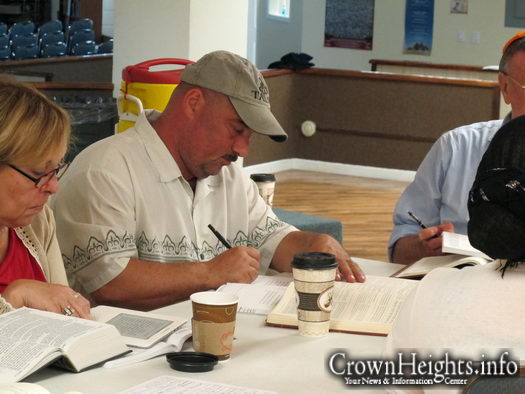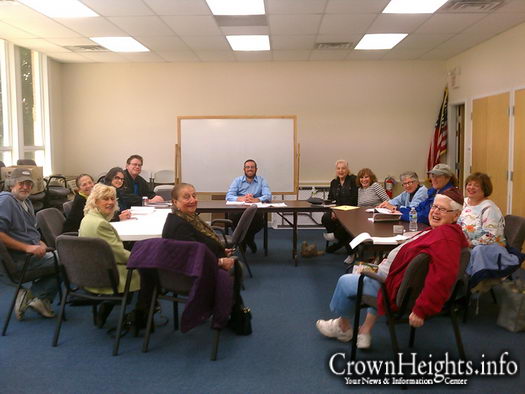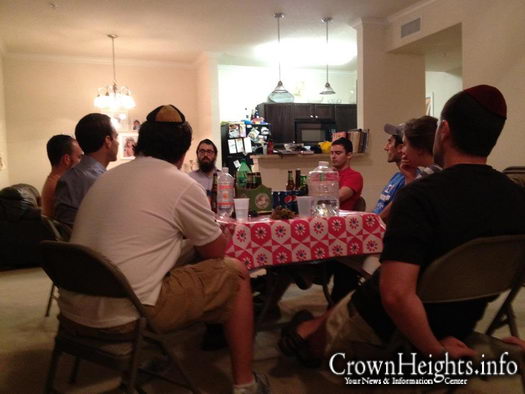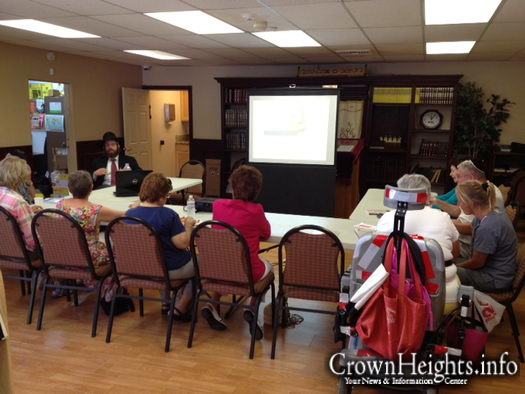
Accessible Worldwide Torah Study with Real-Life Relevance
When students started Skyping in to a weekly Parshah class from Thailand, Pearl Krasnjanski of Chabad-Lubavitch of Hawaii knew that there was something different about this particular learning experience.
“There is a woman in our community in Honolulu who travels for six months of the year, but she did not want to miss the class,” explains Krasnjanski, who has served, together with her husband Rabbi Itchel Krasnjanski, as co-director ofChabad of Hawaii for more than 26 years. “As she and her husband traveled through Bali and Thailand, each week she would Skype in to the Torah Studies class; that’s how much she wanted to participate.”
Torah Studies is a program offered by the Rohr Jewish Learning Institute (JLI), providing well-researched and well-packaged classes to Chabad centers around the world, based on contemporary issues found in the weekly Torah portion.
Now in its eighth year, the program has revolutionized traditional Parshah classes from Brazil to Norway to Asia—and everywhere in between. Today, it counts more than 300 participating affiliates.
“The Torah Studies class and the marketing material it comes with have really added a new level of excitement,” says Krasnjanski.
Preparation for Teachers, Convenience for Students
Rabbi Avrohom Rapoport grew up along the shore and summer vacation hot spot of Atlantic City, N.J., where his parents have served as emissaries for nearly 30 years. Seven years ago, he and his wife, Mashie, joined his parents, Rabbi Shmuel and Tova Rapoport, at Chabad at the Shore, opening a new Chabad center in neighboring Ventnor City. His affiliation with Torah Studies began shortly thereafter.
He explains that his classes take place in a rotation of local public libraries, a venue he feels attracts those who may feel less comfortable learning in a synagogue.
“Residents can book the community room in their local library,” says Rapoport. “For some people, entering a synagogue can be overwhelming, but I find that people are not very afraid of walking into a library. Whereas the class used to attract 15 people, we now regularly draw 30 people.”
Rapoport adds that the weekly classes, which he receives months in advance, gives him time to prepare the material, and have made teaching that much easier.
“I know in advance what the topics of the class will be, so I can send out the beautiful fliers and post it online, and all I have to do is prepare the class beforehand. That level of organization leads to great results.”
Torah education classes have always been an essential part of Chabad’s mission, yet many emissaries simply did not have the time to prepare the textbooks, PowerPoint presentations and traditional sources that would round out their classes. JLI filled that need by launching Torah Studies, which is now billed as the “World’s Largest Parshah Class.”
“We are grateful to be able to assist the shluchim in their important work,” says Rabbi Moshe Teldon, administrator of the Torah Studies program. “So many shluchim are experienced and talented teachers, but do not necessarily have the time or resources to create the full package. By collaborating together, everyone gains.”
Intellectual Depth, Practical Application
Forty miles northwest of Los Angeles, Calif., Greg Friedman is a regular participant in Rabbi Aryeh Lang’s weekly Torah Studies class at Chabad of Camarillo, Calif. Friedman says he appreciates the intellectual depth and how that is coupled with a practical application to his own daily life.
“Each week, I am more inspired than the week before, as each class builds on the other,” he says. “Prior to meeting the rabbi, I had no knowledge of the Torah; however, the way the classes are designed with issues of such depth, I’m amazed that even I can understand them.”
Lang adds that the class has had such a deep impact on Friedman—as it has on many others in his community—that Friedman now regularly attends together with his wife, mother and business partner.
“My business colleague and I always have our own discussion after class to discuss the relevance of the class—not only in our personal lives, but also how it relates to our business objectives and goals,” explains Friedman. “These classes have clearly made me a better businessman.”
Lang also points out that the variety of material the class comes with makes it accessible to more people. “People learn in different ways. Some are visual learners and need PowerPoint to really understand the material; others need a textbook and the quotes printed out in front of them,” says Lang, who moved to Camarillo a decade ago. “Torah Studies comes with those materials, and when people really understand the concepts, you can see how it changes their lives.”
Weekly Classes in a Historic Synagogue
In Brooklyn, N.Y., just a few miles from the JLI headquarters where Torah Studies is produced, Rabbi Yehuda Levin of Chabad of Kensington has launched a Torah Studies class in conjunction with the Ocean Parkway Jewish Center, a historic synagogue founded in 1907. Built in the Classical Revival style used by synagogues in the 1920s, the Jewish Center’s main sanctuary has 1,400 seats, and the majestic building is on the National Register of Historic Places. In the last year the synagogue has partnered with Chabad, hoping to together breathe new life into the venerable institution.
“We launched Torah Studies together with the Ocean Parkway Jewish Center last week, and we had a great initial turnout,” says Levin. “People were very impressed with how beautiful and professional—yet at the same time how deep and personal—the class was. This was only our first class, but we hope to continue to grow.”
For Rabbi Rafi Andrusier, who relocated together with his wife, Chaya, from New York to eastern S. Diego in 2012, Torah Studies became one of the first programs that he launched. Now, one year later, he has witnessed its effects firsthand.
“My class has slowly grown throughout the year. One thing I see about the class is that it doesn’t just serve as an intellectual pursuit; it’s a catalyst for real life change.”















